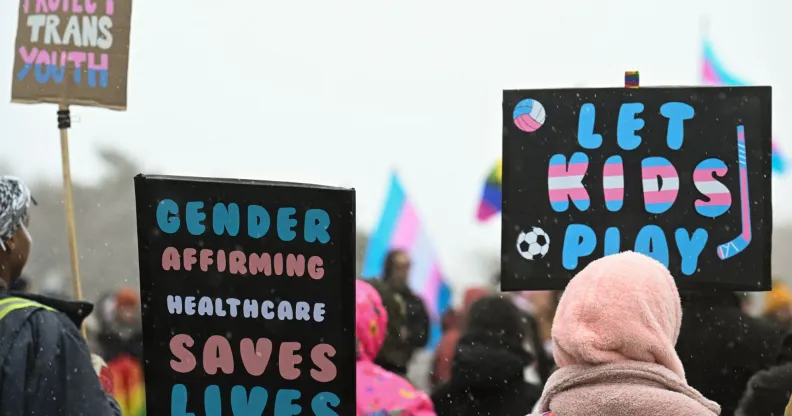In a move that has stirred significant debate, NHS England announced its decision to cease the prescription of puberty blockers to trans youth, marking a significant shift in the approach to gender-affirming healthcare. This decision, framed by authorities as a measure in the “best interests of the child,” has been met with a wave of disappointment and criticism from LGBTQ+ advocacy groups and the wider community.
The Implications of the Decision
Puberty blockers, long considered a cornerstone in the treatment of gender dysphoria for trans youth, act by delaying the physical changes associated with puberty. This treatment has been crucial for many trans individuals, providing them with the time and space necessary to explore their gender identity without the added pressure of unwanted physical changes. Critics of NHS England’s decision argue that it represents a significant step back in the recognition and support of trans youth, potentially leading to adverse psychological and social outcomes for this vulnerable group.
The Broader Context and Future Actions
This decision does not come in isolation but as part of a broader discussion on the availability and accessibility of gender-affirming healthcare in the UK. With growing waiting lists and limited appointments, the healthcare system’s ability to meet the needs of trans individuals has been increasingly questioned. Advocacy groups like Mermaids have vowed to continue their fight for accessible and supportive healthcare for trans youth, emphasizing the importance of treatments like puberty blockers for those who need them. The debate over this decision highlights the ongoing struggle for trans rights and healthcare equity, underscoring the need for inclusive and evidence-based healthcare policies.

